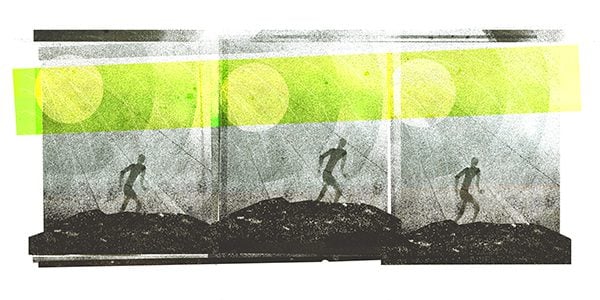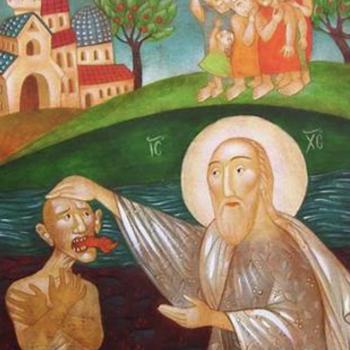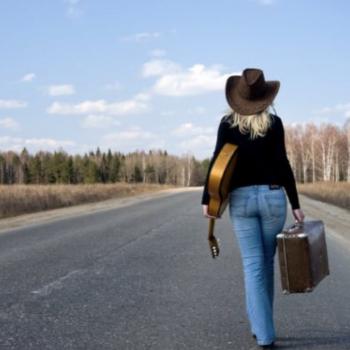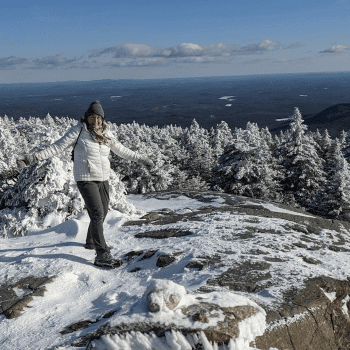
As someone with depression and anxiety, it’s always with mixed emotions that I approach Lent–and this because the experience of darkness and desert and mourning are in some ways close to me all year round.
Yes, in one sense, Lent can be a blessing, since it is when Christ and the whole church suddenly join me amidst the darkness in solidarity. But in other ways, I can become a little annoyed and envious. In my more sour moods, it can seem like Lent is the time of year when all the privileged people get to do a little penitential cosplay–give up a few minor things and come out reborn and happy on the other side. Happiness for such people is often easily paused at the beginning of Lent and easily resumed afterward. It feels a bit unfair to us sufferers that the terrifying landscape we inhabit–the one we can’t remember the beginning of and can’t see the end of–suddenly becomes a playground for ever so many acts of spiritual romanticism. The desert gets crowded, and those of us who have been here a while watch the antics and quietly wait for the crowds to go away. We know the desert. Or perhaps to put it better, we know we don’t know.
What I mean by this, at least in reference to myself, is that it’s not as if I’m good at the desert. It’s not as if I’ve discovered “the trick” to living here or achieved incredible sagacity. If you try to master the desert, it will master you, and if you try to master it in any case, you’ve missed the point. The point of the desert experience is not to master it, but to survive intact, as a whole person, without giving in to temptation. It’s a deadly, dog-eat-dog place. Can you survive it without it turning you into something bitter, dry, and twisted too? Perhaps only by a miracle.
I realize that some will say I’m missing the point. Shouldn’t Lenten spirituality be something more healthy, perhaps directed toward prayer, fasting, and almsgiving? Well, yes. And I don’t deny the importance of these practices, but there’s still an ambiguous shadow side to Lent as well, a side that is dark and dangerous and sometimes fatal.
Christ met Satan in the desert. Many of the Israelites died in the wilderness. And to those who say the darkness of depression and anxiety are not the same darkness as that which we enter in Lent, well, darkness doesn’t come with a label. Sure, in retrospect it is easy to categorize and label, tracing with so many names what kind of darkness we have come through, after the fact. But part of the terror of darkness in the moment is that it is dark. If it gave us certainty about what it is, it wouldn’t, properly speaking, be darkness. Can depression and anxiety–provided we aren’t merely refusing health care and self-care as a twisted form of spiritual masochism–be part of our proper desert experience during Lent? I don’t see why not.
All this being said, I want to conclude this reflection with hope rather than despair.
First, Christ is with us regardless of the feeling of his nearness or absence. As a desert dweller, I take much comfort in that.
Second, I wonder if part of the point of Lent is that those surviving in the desert and those who are merely Lenten visitors should talk and swap stories. Maybe there is something a casual pilgrim in the land of suffering can learn from a desert dweller–though come to think of it, everybody suffers, and maybe there are no “casual” participants after all. Conversely, maybe long-time desert dwellers can learn something of hope from those who have touched it more recently or more thoroughly than they.
And so this Lent, I’m listening.
This reflection was contributed by Karl Persson, an assistant professor of literature at Our Lady Seat of Wisdom College in Barry’s Bay, Ontario in Canada.











